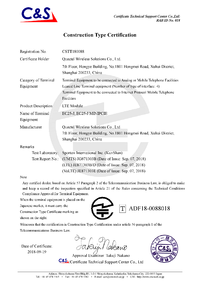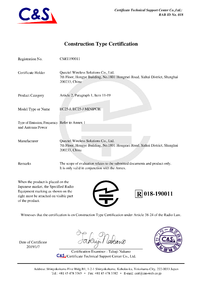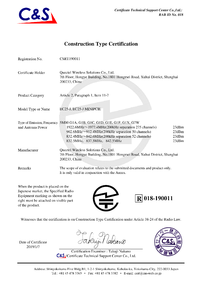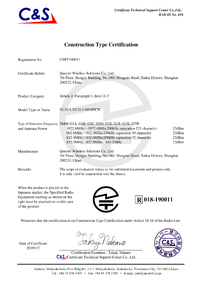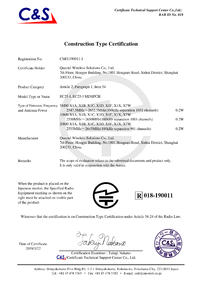RUT240 Giteki: Difference between revisions
No edit summary |
No edit summary |
||
| (5 intermediate revisions by 2 users not shown) | |||
| Line 1: | Line 1: | ||
{{Networking device certification Giteki|R=018-200088|T=D20-0034018|link_img_1=Special:Redirect/file/RUT240_Giteki.png|link_img_2=Special:Redirect/file/RUT240_Giteki2.png|file1_pdf=RUT240_Giteki.pdf|file2_pdf=RUT240_Giteki2.pdf|name=RUT240|file_img_1=RUT240_Giteki.png|file_img_2=RUT240_Giteki2.png|file3_pdf=RUT240_module.pdf|file4_pdf=RUT240_module2.pdf|file_img_3=RUT240_module.png|file_img_4=RUT240_module2.png|link_img_3=Special:Redirect/file/RUT240_module.png|link_img_4=Special:Redirect/file/RUT240_module2.png}} | {{Networking device certification Giteki | ||
|R=018-200088 | |||
|T=D20-0034018 | |||
|link_img_1=Special:Redirect/file/RUT240_Giteki.png | |||
|link_img_2=Special:Redirect/file/RUT240_Giteki2.png | |||
|file1_pdf=RUT240_Giteki.pdf | |||
|file2_pdf=RUT240_Giteki2.pdf | |||
|name=RUT240 | |||
|order code1= *5**** (Japan version) | |||
|order code2= *7**** (Global version) | |||
|file_img_1=RUT240_Giteki.png | |||
|file_img_2=RUT240_Giteki2.png | |||
|file3_pdf=RUT240_module.pdf | |||
|file4_pdf=RUT240_module2.pdf | |||
|file_img_3=RUT240_module.png | |||
|file_img_4=RUT240_module2.png | |||
|link_img_3=Special:Redirect/file/RUT240_module.png | |||
|link_img_4=Special:Redirect/file/RUT240_module2.png | |||
|file5_pdf=RUT240_module3.pdf|file6_pdf=RUT240_module4.pdf | |||
|link_img_5=Special:Redirect/file/RUT240_module3.png | |||
|link_img_6=Special:Redirect/file/RUT240_module4.png | |||
|file_img_5=RUT240_module3.png | |||
|file_img_6=RUT240_module4.png | |||
|file_img_radio_law=RUT240_Radio_Law.png | |||
|link_img_radio_law=Special:Redirect/file/RUT240_Radio_Law.png | |||
|radio_law_link=https://www.tele.soumu.go.jp/giteki/SearchServlet?pageID=jg01_01&PC=018&TC=N&PK=1&FN=200602N018&SN=%94%46%8F%D8&LN=17&R1=*****&R2=*****}} | |||
Latest revision as of 09:20, 22 January 2021
Main Page > EOL Products > RUT240 > RUT240 Certification & Approvals > RUT240 Giteki
The Japan Radio Law covers all products which utilize the radio spectrum and operate under 3 THz. Specified Radio Equipment Devices are subject to mandatory approvals. It aims at increasing public welfare by securing fair and efficient use of an electric waves. Testing is conducted on one sample unit for each type of radio equipment (officially called "construction design"), for attestation of the construction design. This is called the "construction design attestation system."
Description
This certification applies to all products using the radio frequency spectrum. The Giteki mark is a visible indication of a product's compliance with applicable Japans regulatory arrangements, including all technical and record-keeping requirements.
RUT240 Applied Standards
The conformity with the essential requirements has been demonstrated against the following harmonized standards:
| Standard | Description |
|---|---|
| Article 38-24 of the Radio law | Wireless communication Standard |
| Article 56 paragraph 1 of the Telecommunications Business Law | Wireless communication Standard |
Giteki mark Certificate [R] No.: 018-200088
Giteki mark Certificate [T] No.: D20-0034018
Therefore ![]() is placed on the product.
is placed on the product.
Device Approvals
Radio Law certification information can be found on The Radio Use Web Site.
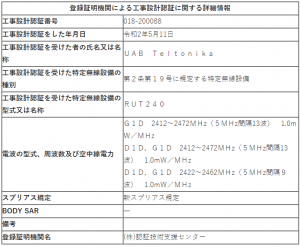
 |
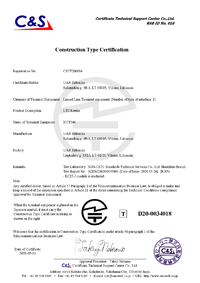 |
To download a PDF versions of the declaration for: device (1/2), device (2/2)
EC25-J Wireless Module Approval
Product code: RUT240 *5**** (Japan version)
To download a PDF versions of the declaration for: module (1/5), module (2/5), module (3/5), module (4/5) , module (5/5)
EG25-G Wireless Module Approval
Product code: RUT240 *7**** (Global version)
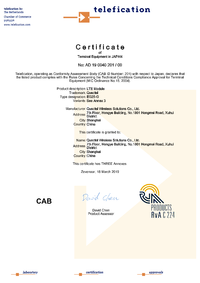 |
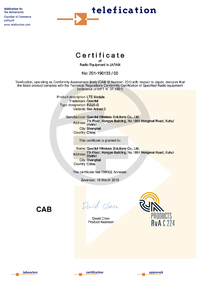 |
To download a PDF versions of the declaration for: module (1/2), module (2/2)
External links
- RUT240 Radio Law
Disclaimer:
Test reports that are referenced in declarations and certificates can be provided upon request. For the request to be approved, the recipient of the test reports should be a certification authority or certified test house. The recipients will be asked to sign a non-disclosure agreement (NDA).

